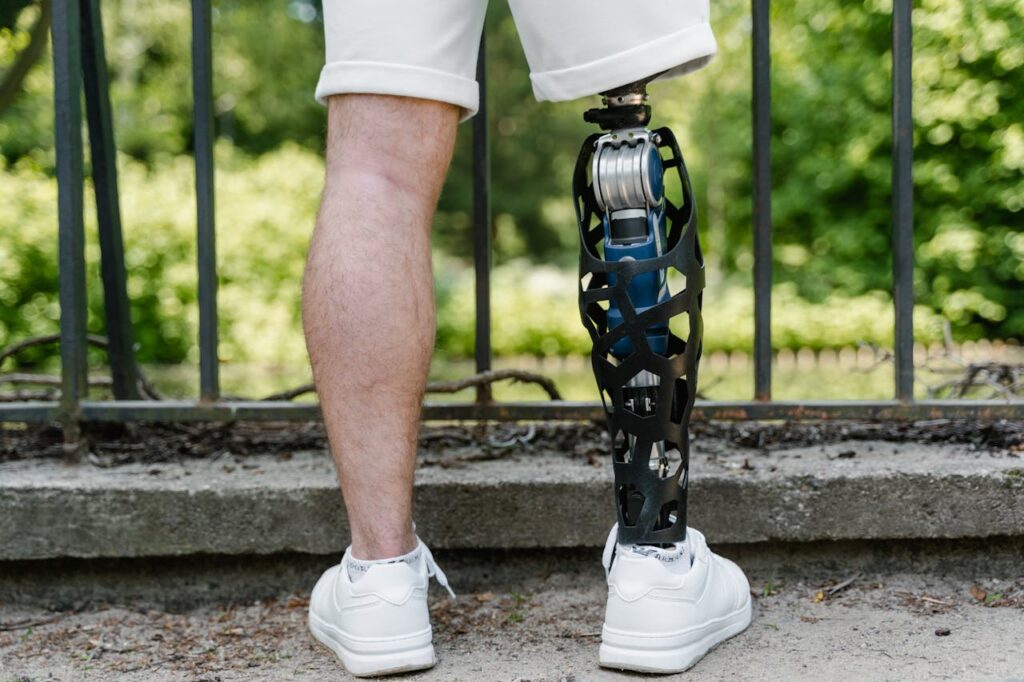From Digital Twins to Virtual Care: How Artificial Intelligence Can Help Personalize Healthcare

From Digital Twins to Virtual Care: How Artificial Intelligence Can Help Personalize Healthcare
The field of medicine is about to enter a new age, one in which artificial intelligence (AI) will not only assist medical professionals but will also personalize treatment plans for each patient. Personalized healthcare is the future of medicine, and technologies driven by artificial intelligence, such as digital twins, predictive analytics, and virtual care, are at the forefront of this transition among medical professionals. By the year 2025, the primary emphasis will have shifted from the treatment of diseases to the planning, prevention, and individualization of each and every facet of patient care.
Personalized healthcare: what exactly is it?
The concept of personalized healthcare refers to the process of developing treatment plans, drugs, and preventative methods that are specifically suited to the genetic composition, lifestyle, and health data of an individual individually. Instead of using a cookie-cutter approach, artificial intelligence makes use of data from wearable devices, electronic health records, and real-time monitoring to provide individualized treatment that is tailored to the specific requirements of each patient.
How Artificial Intelligence Can Help Personalize Healthcare
Unlike humans, artificial intelligence is able to digest enormous volumes of data much more quickly, therefore seeing patterns that might otherwise be missed. This involves doing an analysis of genetics, previous medical records, and even real-time data from fitness trackers in order to develop a treatment strategy that is tailored to the individual patient.
The following are key ways that artificial intelligence improves personalization:
- Through the use of artificial intelligence algorithms, predictive diagnostics may uncover early warning indications of illnesses like as cancer, diabetes, or heart issues long before the symptoms manifest themselves.
- AI has the ability to customize medicine by analyzing how patients react to certain medications and adjusting doses accordingly to get better results.
- Assistants for virtual health: Artificial intelligence chatbots and assistants may monitor patients on a daily basis, encouraging them to take their meds and advising them to make improvements to their lifestyle.
In the future of health modeling, digital twins will be used.
The notion of digital twins is one of the most ground-breaking developments that has been made in the development of customized healthcare. The term “digital twin” refers to a digital clone of a patient’s body that is constructed via the use of medical data, genetic information, and real-time health meters.
- To understand how digital twins function, picture a three-dimensional, data-driven replica of your body that responds in the same way that you would to therapies or changes in your lifestyle.
- By “testing” different treatments or drugs on your digital twin before administering them to you, medical professionals may ensure that they are as successful as possible while causing the fewest possible adverse effects.
- When it comes to the care of heart illness, for instance, digital twins may mimic how a certain medication affects blood pressure or cardiac function, therefore assisting medical professionals in selecting the most secure alternative.
The use of telemedicine and virtual care
Particularly in the wake of the pandemic, virtual care has emerged as an essential component of contemporary medical practice. Artificial intelligence-driven telemedicine technologies enable medical professionals to diagnose, monitor, and treat patients remotely.
- Video consultations driven by artificial intelligence in which a virtual assistant gathers symptoms before the doctor enters the session are an example of how virtual care is evolving.
- Wearable health gadgets, such as smartwatches, are capable of delivering real-time data to healthcare professionals. This data includes heart rate, oxygen levels, and sleep habits.
- There are applications for mental health that provide treatment sessions powered by artificial intelligence, mood monitoring, and individualized coping tactics.
AI-driven personalized healthcare has a number of advantages.
It is possible to diagnose illnesses at an earlier stage using predictive analytics.
- a reduction in the amount of drug and treatment mistake that occurs.
- Reduced expenses associated with medical treatment as a result of preventative care and remote monitoring.
- Patient participation is improved by the use of interactive and individualized health suggestions.
- Treatments that are customized to the individual body’s reactions might result in faster healing times.
Considerations of Ethical Implications and Obstacles
Artificial intelligence (AI) carries with it a number of obstacles, including data privacy, security threats, and algorithm bias, despite the incredible advantages it offers. Strong encryption and regulatory compliance are absolutely necessary in order to ensure the success of customized healthcare, which is highly dependent on personal data. Furthermore, suggestions made by AI should never replace human medical knowledge; rather, they should always complement it.
The Prospects for Artificial Intelligence in the Field of Personalized Healthcare
A healthcare system that is predictive, preventative, and proactive is anticipated to be created using artificial intelligence by the year 2030. It will become usual to have digital twins, which will enable individuals to monitor their health in real time. Additionally, home gadgets powered by artificial intelligence will serve as personal health coaches.
We are growing closer to a future in which artificial intelligence (AI) doctors and virtual care platforms will operate in tandem with human physicians to provide healthcare that is not only more efficient but also more intelligent and more individualized.
No longer a science fiction concept, personalized healthcare using artificial intelligence is both the present and the future of medicine. AI is transforming the patient experience in a variety of ways, including the creation of digital twins that mimic your body and virtual care platforms that give therapies to patients in their homes. What is the end result? You will experience better results, reduced costs, and a healthcare system that is tailored to your needs.




